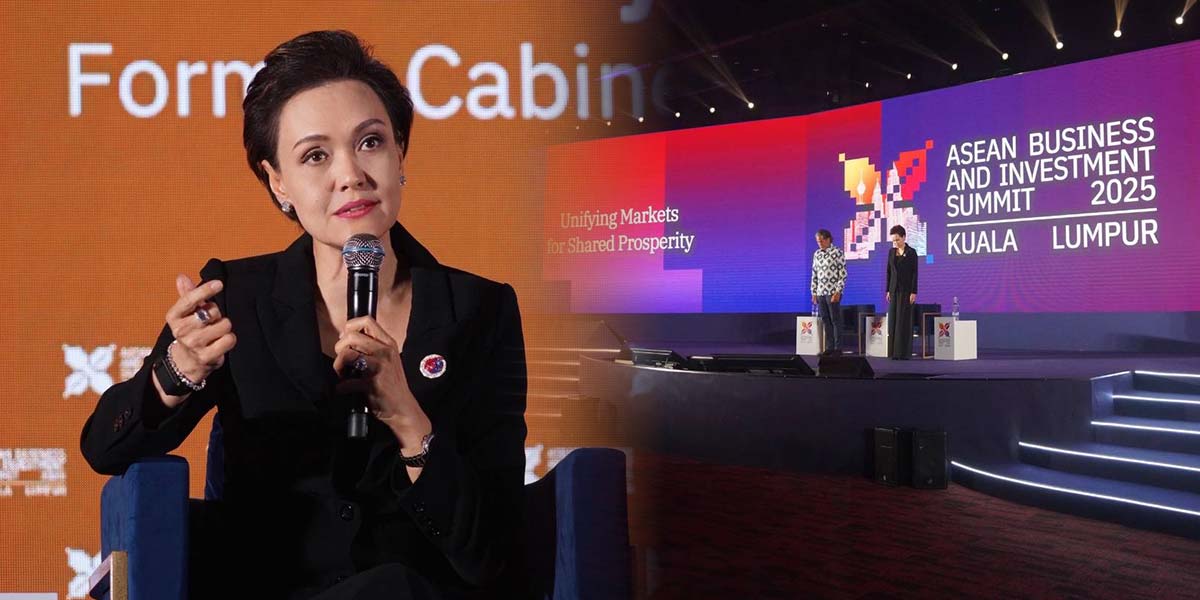On October 25, 2025, Mrs. Suphajee Suthumpun, Minister of Commerce, represented Mr. Anutin Charnvirakul, Prime Minister and Minister of Interior, on stage to present the Thai government’s economic vision at the ASEAN Business and Investment Summit.
The event, organized by the ASEAN Business Advisory Council (ASEAN – BAC) during the week of the ASEAN Summit, took place in Kuala Lumpur, Malaysia, and was attended by more than 500 business participants from across ASEAN.
Mrs. Suphajee stated that under Mr. Anutin’s government, despite facing several current challenging situations, there are clear economic policies aimed at generating tangible short-term results with long-term effects. These are designed to restore confidence and lay the groundwork for a new era of the country’s growth.
Notable measures include the “Half-Half” co-payment program, which will help reduce the cost of living for over 13-14 million people and stimulate domestic consumption; household debt restructuring; support for SMEs to join the franchise system with standards, training, and access to funding; and attracting foreign investment through the “Fast Plus Pass” initiative, which streamlines bureaucracy and expedites Board of Investment (BOI) approvals, allowing investors to establish businesses in Thailand more quickly.
Mrs. Suphajee addressed Thailand’s long-term objective of leveraging its agricultural strengths to become the region’s food security hub. She also highlighted the promotion for the private sector to adapt to ESG standards and digital technology.
She identified seven future industries that will be key in enhancing the country’s competitiveness: digital and artificial intelligence, advanced semiconductors, next-generation automobiles, future foods, clean energy, biotechnology, and health and wellness sciences.
Additionally, Thailand aims to become a logistics and digital center for the ASEAN region, leveraging its strategic location connecting China and Southeast Asia, as well as Thailand’s role as Chair of the ASEAN Digital Economy Framework Agreement (DEFA) negotiations. This agreement will elevate ASEAN into a more connected, robust, and resilient digital economic region.
These policies are part of the “Quick Big Win” strategy the government is using to restore economic confidence.
Mrs. Suphajee emphasized that, although the government’s term is limited, Thailand has a clear economic plan and is determined to achieve “short-term economic victories,” focusing on urgent solutions for the people while building the economic foundations for the future — reestablishing Thailand as a strong, open regional economic hub.




